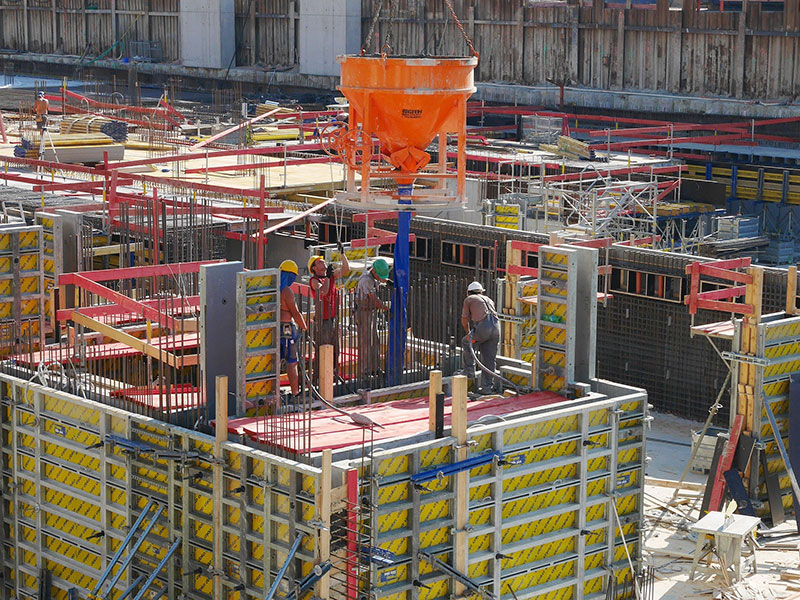Advertisement
Are you feeling overwhelmed by a large project? When undertaking a large project, it is important to have a plan and stick to it. This can be difficult when there are so many variables and things that can go wrong. But with the right attitude and careful planning, you can make any large project go smoothly. This article will discuss six tips to help you stay on track and complete your project quickly and efficiently. Let’s get started.
Get a Surety Bond
One of the best ways to protect yourself and your project is to get a surety bond. This type of bond is a financial guarantee that the project will be completed as specified in the contract. If the contractor fails to complete the project, the surety company will pay the owner for any losses incurred. This type of bond gives the owner and contractor peace of mind, knowing that financial protection is in place.
However, there are various tips to consider when getting surety bonds for your project. First, there are various specialist surety bond providers you can use, so it’s important to compare rates and coverage. Second, get the bond in place early on in the project. This will ensure that you’re protected from the start. With a surety bond in place, you can be confident that your project will be completed as planned.
Get the Right Insurance Coverage
Another important step when embarking on a large project is getting the right insurance coverage. There are many different types of insurance available, and choosing a policy that meets your needs is important. For example, if you’re working on a construction project, you’ll need to get the insurance that covers the cost of repairs if the structure is damaged.
You should also consider getting insurance that covers any legal liabilities. This type of coverage will protect you if someone is injured while working on the project. It’s important to get the right insurance coverage before starting work on your project. For instance, you can get a policy that covers the cost of repairs if the property is damaged, or you can get insurance that covers any legal liabilities in case someone is injured while working on the project.
Hire the Right Contractor
It is also important to hire the right contractor for the job. This means doing your research and vetting potential candidates carefully. Make sure you check references and reviews and meet with the contractor to get a feel for their knowledge and experience. Once you’ve found the right contractor, sign a contract outlining the scope of work and the timeline for completion.
By taking the time to find a reputable contractor, you can avoid problems down the line. A good contractor will have the experience and knowledge to complete the job correctly and on time. They will make you avoid problems such as poor workmanship, delays, and unexpected costs.
Create a Detailed Plan
When embarking on a large project, it’s important to have a detailed plan in place. This plan should include the project’s goals, the budget, the timeline, and who is responsible for each stage of the project. Having a plan can avoid problems and keep the project on track.
The plan should be as detailed as possible, outlining every process step. This will help ensure that everyone involved knows what needs to be done and when it needs to be done. Make sure to review the plan regularly and update it as needed. For instance, if the budget changes or the timeline needs to be adjusted.
Keep Communication Open
Without open communication, projects can quickly go off the rails. To avoid this, make sure to keep lines of communication open between all parties involved in the project. This includes the contractor, the owner, and any other stakeholders.
Open communication will help ensure everyone is on the same page and that problems are identified early on. Make sure to schedule regular meetings or touch base via email or phone. This will help keep the project running smoothly.
Be Prepared for the Unexpected

No matter how well you plan, there’s always a chance that something will go wrong. It’s important to be prepared for the unexpected and have a contingency plan in place. This plan should include what to do if the budget needs to be increased or the timeline is delayed.
Preparing for the unexpected can avoid costly delays and keep the project on track. Make sure to review the contingency plan regularly and update it as needed. This will help ensure that you’re always prepared for anything. A good example is when the contractor falls ill, and you must find a new one to complete your project.
By following these six tips, you can ensure that your large project goes smoothly. By getting a surety bond, planning, hiring the right contractor, and keeping communication open, you can avoid problems and keep the project on track. And if something does go wrong, be prepared with a contingency plan. By preparing for the unexpected, you can avoid costly delays and keep your project on track.

